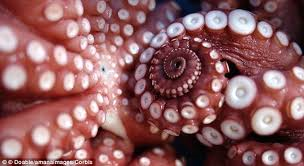
Breaking News
How Do Dumb People or Corrupt People Get Elected to Top Positions?
 Brand New Solar Battery With THIS Amazing Feature! EG4 314Ah Wall Mount Review
Brand New Solar Battery With THIS Amazing Feature! EG4 314Ah Wall Mount Review
 This New Forecast Just Got WAY Worse...
This New Forecast Just Got WAY Worse...
 S3E4: The Freedom Movement Funded Its Own Prison
S3E4: The Freedom Movement Funded Its Own Prison
Top Tech News
 The day of the tactical laser weapon arrives
The day of the tactical laser weapon arrives
 'ELITE': The Palantir App ICE Uses to Find Neighborhoods to Raid
'ELITE': The Palantir App ICE Uses to Find Neighborhoods to Raid
 Solar Just Took a Huge Leap Forward!- CallSun 215 Anti Shade Panel
Solar Just Took a Huge Leap Forward!- CallSun 215 Anti Shade Panel
 XAI Grok 4.20 and OpenAI GPT 5.2 Are Solving Significant Previously Unsolved Math Proofs
XAI Grok 4.20 and OpenAI GPT 5.2 Are Solving Significant Previously Unsolved Math Proofs
 Watch: World's fastest drone hits 408 mph to reclaim speed record
Watch: World's fastest drone hits 408 mph to reclaim speed record
 Ukrainian robot soldier holds off Russian forces by itself in six-week battle
Ukrainian robot soldier holds off Russian forces by itself in six-week battle
 NASA announces strongest evidence yet for ancient life on Mars
NASA announces strongest evidence yet for ancient life on Mars
 Caltech has successfully demonstrated wireless energy transfer...
Caltech has successfully demonstrated wireless energy transfer...
 The TZLA Plasma Files: The Secret Health Sovereignty Tech That Uncle Trump And The CIA Tried To Bury
The TZLA Plasma Files: The Secret Health Sovereignty Tech That Uncle Trump And The CIA Tried To Bury
Next-gen adhesive based on octopus suckers

Now, Korean scientists have developed a material that mimics the sucker discs on those tentacles. It could be used for adhesive pads that are reversible, reusable, fast-acting, and effective even in wet conditions.
A real octopus sucker disc has a hollow cavity in the middle, surrounded by a ring of muscle tissue. The size of the cavity is controlled by the octopus making that tissue thicker or thinner – the thinner the muscle tissue, the larger the cavity, and the lower the air pressure within it. A larger cavity creates more suction, while a smaller one causes the disc to release.
The scientists, from the Korea Institute of Science and Technology (KIST) and Ulsan National Institute of Science and Technology (UNIST), made their pad using rubbery polydimethylsiloxane (PDMS) studded with an array of tiny pores. Each of those pores is lined with a thermally-responsive polymer.

 Nano Nuclear Enters The Asian Market
Nano Nuclear Enters The Asian Market


